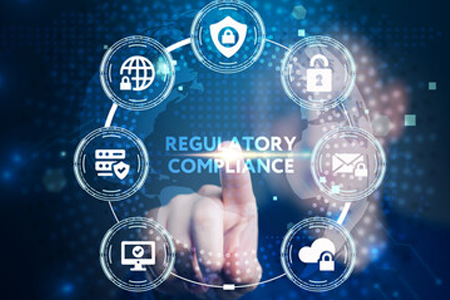
Information on our cyber security compliance Service
Cybersecurity compliance refers to the set of rules, regulations, and standards that organizations must adhere to in order to protect their sensitive information and systems from cyber threats. Compliance with these regulations is essential to maintain the integrity and security of an organization's data, as well as to avoid legal and financial penalties for non-compliance.
There are several cybersecurity compliance frameworks that organizations can follow, including the Payment Card Industry Data Security Standard (PCI DSS), the Health Insurance Portability and Accountability Act (HIPAA), and the General Data Protection Regulation (GDPR). Each framework has its own set of requirements and guidelines that organizations must follow to ensure they are adequately protecting their data.
To achieve cybersecurity compliance, organizations must develop and implement security policies and procedures, such as access controls, data encryption, and network monitoring. They must also regularly assess their security posture through vulnerability scans, penetration testing, and risk assessments, and address any vulnerabilities or weaknesses identified. Additionally, organizations must ensure that all employees are trained on cybersecurity best practices and that third-party vendors are also in compliance with the relevant regulations.


cyber security compliance service Details
In conclusion, cybersecurity compliance is crucial for any organization that handles sensitive information. Compliance with the relevant regulations helps to safeguard against cyber threats, protect customer data, and avoid legal and financial repercussions. It is essential for organizations to prioritize cybersecurity compliance and implement robust security measures to protect their data and systems.
Protecting Sensitive Information
Companies collect and store sensitive information such as customer data, financial information, and intellectual property. Cybersecurity compliance helps companies protect this information from unauthorized access, disclosure, or theft. It provides a framework for implementing security controls, policies, and procedures to safeguard against cyber threats.
Avoiding Legal and Financial Penalties
Many industries have regulations and compliance standards that require companies to protect customer data and ensure data privacy. Failure to comply with these regulations can result in legal and financial penalties, such as fines and damage to a company's reputation. Cybersecurity compliance helps companies avoid these penalties by ensuring they meet the necessary security standards.
Maintaining Business Continuity
Cybersecurity incidents can disrupt business operations, resulting in lost revenue, reputational damage, and increased costs. Compliance with cybersecurity standards helps companies mitigate the risk of cyber incidents and ensures they have measures in place to respond to and recover from any incidents that do occur.
Meeting Customer Expectations
Customers expect the companies they do business with to protect their data and privacy. Compliance with cybersecurity standards demonstrates a company's commitment to protecting its customers' information and helps build trust and confidence in the company's brand. In today's digital age, where data breaches are becoming increasingly common, meeting customer expectations for cybersecurity is essential for maintaining a competitive advantage.
most asked questions
Cybersecurity compliance refers to the adherence of an organization to a set of rules, regulations, and standards designed to ensure the confidentiality, integrity, and availability of information and information systems. Compliance frameworks such as the Payment Card Industry Data Security Standard (PCI DSS), the Health Insurance Portability and Accountability Act (HIPAA), and the General Data Protection Regulation (GDPR) are some examples of these standards.
Organizations need to comply with cybersecurity regulations to protect their sensitive information and systems from cyber threats, avoid legal and financial penalties for non-compliance, maintain business continuity, and meet customer expectations for data protection and privacy.
Organizations can achieve cybersecurity compliance by following the relevant compliance frameworks and implementing security policies, procedures, and controls. This includes regular vulnerability assessments, penetration testing, risk assessments, access controls, data encryption, and network monitoring. Regular training of employees on cybersecurity best practices is also essential.
Non-compliance with cybersecurity regulations can result in legal and financial penalties, damage to a company's reputation, and loss of business. Penalties for non-compliance can include fines, legal action, and loss of business licenses. Additionally, data breaches resulting from non-compliance can lead to the loss of sensitive information and the violation of customers' privacy, resulting in the loss of customer trust and potential lawsuits.